Julia Fountain’s Teacher Blog: November 2014. Please comment!
“DREAM? I’m old fashioned. I have an iPad, but I don’t use that computer stuff in my lessons.”
I’ve only recently discovered that many – perhaps all – of my local ORMTA branch colleagues have somehow missed out on hearing about the Music Tool Suite, and DREAM in particular. I chatted with that “old fashioned” colleague recently, and as I waxed poetic about the wondrous, stress-saving apps and links, she remained lukewarm. I suspect her response sums up a common sentiment: “What’s in it for me?”
 Many parents and teachers see their children and the children they work with surrounded, perhaps smothered, by technology, and feel that music lessons and practice are the activities they feel should remain untainted by the lure of the technology sirens. Fair enough. However, that doesn’t mean there’s no value to be found online. Even if we teachers prefer to keep the cute little apps out of our day-to-day teaching, there’s still useful content out there that can be used during and between lessons.
Many parents and teachers see their children and the children they work with surrounded, perhaps smothered, by technology, and feel that music lessons and practice are the activities they feel should remain untainted by the lure of the technology sirens. Fair enough. However, that doesn’t mean there’s no value to be found online. Even if we teachers prefer to keep the cute little apps out of our day-to-day teaching, there’s still useful content out there that can be used during and between lessons.
PROBLEM: I’m sure we’ve all had a student who, no matter how many times we suggest, demonstrate, explain, remind, and demand, just will not practice slowly. Week after week, we might see small improvements, but we KNOW it could be better, and we KNOW the problem: the student is practising too fast. They’re playing the piano version of “pin the tail on the donkey” – 10 times terribly, perhaps 3 times  correctly, in quick succession and ALL played much too fast.
correctly, in quick succession and ALL played much too fast.
SOLUTION: Sad but likely true, the famous people on YouTube could be more believable than we teachers. Welcome to a quick DREAM search – I clicked “browse,” then “practising” from the list of options, and came up with several suggestions, including these.
An engaging fellow with information pacing suitable for most kids 10+ http://www.dreammusictool.ca//can-slow-practice-improve-your-piano-playing-piano-techniques
A younger (thus cooler?) speaker, appropriate for later-intermediate to advanced students. http://dreammusictool.ca/efficient-piano-practice-lesson-josh-wright-piano-tv
For older students, Angela Hewitt has a brief but teacher-supportive “it’s not easy, but I do it anyway” message. http://dreammusictool.ca/angela-hewitt-importance-slow-practice
Up next – looming January exams, and more DREAM content for app lovers and haters.

 Members of the MEDA team have just completed five successful days of meetings and conference sessions in Scotland. One of the highlights was the opportunity to showcase the tools in the Music Tool Suite to colleagues at the
Members of the MEDA team have just completed five successful days of meetings and conference sessions in Scotland. One of the highlights was the opportunity to showcase the tools in the Music Tool Suite to colleagues at the  Later in the week, the Scottish Educational Research Association (SERA) met in Edinburgh in conjunction with the World Educational Research Association (WERA). We reported on the transnational artistic co-creation, facilitated through iSCORE, that took place in LTTA classrooms in Canada and Germany during this past school year.There were many questions about the work, particularly from our American and German colleagues.
Later in the week, the Scottish Educational Research Association (SERA) met in Edinburgh in conjunction with the World Educational Research Association (WERA). We reported on the transnational artistic co-creation, facilitated through iSCORE, that took place in LTTA classrooms in Canada and Germany during this past school year.There were many questions about the work, particularly from our American and German colleagues. This is the final post in our Frequently Asked Question Series. We’d like to once again thank the thousands of students and teachers who took the time to respond to our surveys. This post highlights some of the questions people had about resources.
This is the final post in our Frequently Asked Question Series. We’d like to once again thank the thousands of students and teachers who took the time to respond to our surveys. This post highlights some of the questions people had about resources.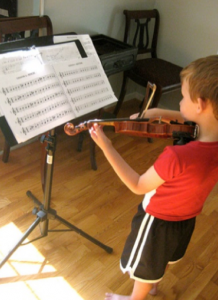 ur second post in our Frequently Asked Question series. We took the
ur second post in our Frequently Asked Question series. We took the  We had the pleasure of presenting DREAM (Digital Resource Exchange About Music) at the International Conference on Education and Educational Psychology in Kyrenia, North Cyprus. Dr. Phillip Abrami and Dr. Rena Upitis shared information about how DREAM was developed and about the tool itself, which allows users to browse various apps, websites, and recordings, as well as to add resources of their own. Users can also comment on the resources in DREAM – think of it as a Trip Advisor for music teachers!
We had the pleasure of presenting DREAM (Digital Resource Exchange About Music) at the International Conference on Education and Educational Psychology in Kyrenia, North Cyprus. Dr. Phillip Abrami and Dr. Rena Upitis shared information about how DREAM was developed and about the tool itself, which allows users to browse various apps, websites, and recordings, as well as to add resources of their own. Users can also comment on the resources in DREAM – think of it as a Trip Advisor for music teachers!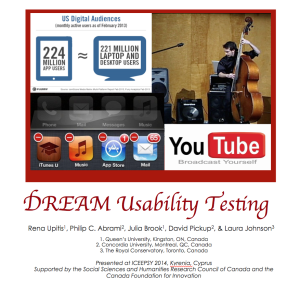 The usability study involved 50 music teachers of varying technological skills to use DREAM. These teachers responded to questionnaires and provided feedback about the different aspects of the site. We analyzed their responses in terms of usefulness, efficiency, effectiveness, and satisfaction. Through four rounds of testing, we improved on the user experience and have developed a wonderfully useful tool to help musicians keep abreast about digital technologies. Keep an eye out for the full study in the conference proceedings as well as in the European Journal of Social and Behavioural Sciences.
The usability study involved 50 music teachers of varying technological skills to use DREAM. These teachers responded to questionnaires and provided feedback about the different aspects of the site. We analyzed their responses in terms of usefulness, efficiency, effectiveness, and satisfaction. Through four rounds of testing, we improved on the user experience and have developed a wonderfully useful tool to help musicians keep abreast about digital technologies. Keep an eye out for the full study in the conference proceedings as well as in the European Journal of Social and Behavioural Sciences.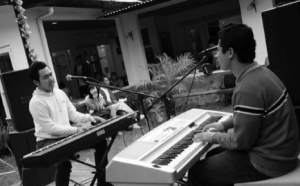 We wish to thank the thousands of studio music teachers, music students, and parents of music students who took time to complete our surveys over the past year. We are grateful to all of you for your willingness to share your perceptions and experiences with us.
We wish to thank the thousands of studio music teachers, music students, and parents of music students who took time to complete our surveys over the past year. We are grateful to all of you for your willingness to share your perceptions and experiences with us. 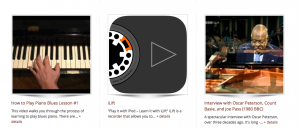 If you were stranded on a WIFI-enabled desert island and could only access one digital resource, what would it be? Seriously, how many can you think of? Perhaps you’re new to the digital-resources world and feel fortunate just to have navigated this far. No worries, help is near. Or perhaps you’re a seasoned “digiphile” and have loads of online resources at your fingertips – your expertise is needed!
If you were stranded on a WIFI-enabled desert island and could only access one digital resource, what would it be? Seriously, how many can you think of? Perhaps you’re new to the digital-resources world and feel fortunate just to have navigated this far. No worries, help is near. Or perhaps you’re a seasoned “digiphile” and have loads of online resources at your fingertips – your expertise is needed!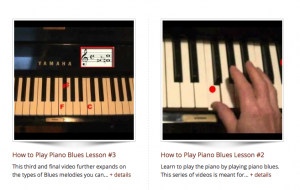 As young as it is, DREAM is an ever-growing, ever-evolving entity and I can’t give enough thanks to the contributors who have nurtured it to this point, and to the current and future contributors! If you come across something that catches your attention, please take a moment to add to the DREAM database yourself, even if it’s simply to rate a resource. Enjoy!
As young as it is, DREAM is an ever-growing, ever-evolving entity and I can’t give enough thanks to the contributors who have nurtured it to this point, and to the current and future contributors! If you come across something that catches your attention, please take a moment to add to the DREAM database yourself, even if it’s simply to rate a resource. Enjoy!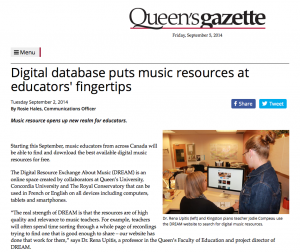
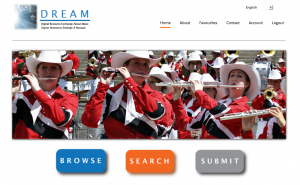 Today is the official virtual launch of DREAM
Today is the official virtual launch of DREAM 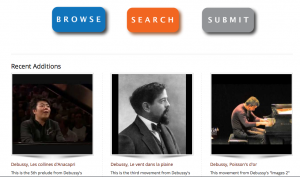 2478 … that’s the number of resources waiting for you on DREAM at this very moment — and we’re hoping for close to 3,000 when we officially launch on September 1. Stay tuned… for updates as the countdown continues!
2478 … that’s the number of resources waiting for you on DREAM at this very moment — and we’re hoping for close to 3,000 when we officially launch on September 1. Stay tuned… for updates as the countdown continues!